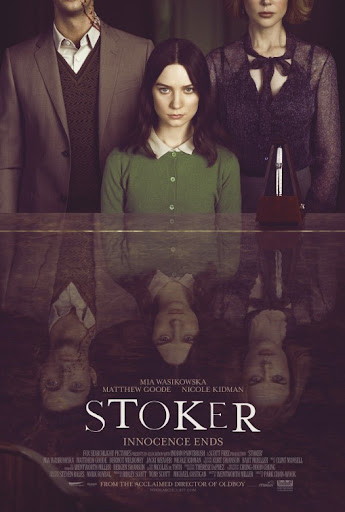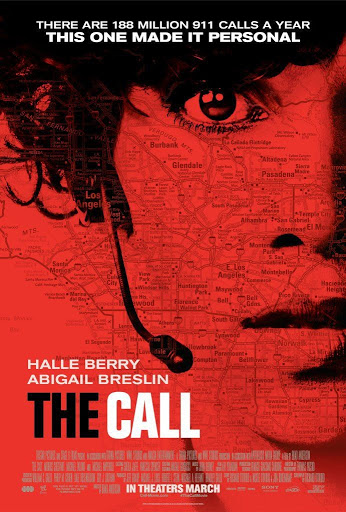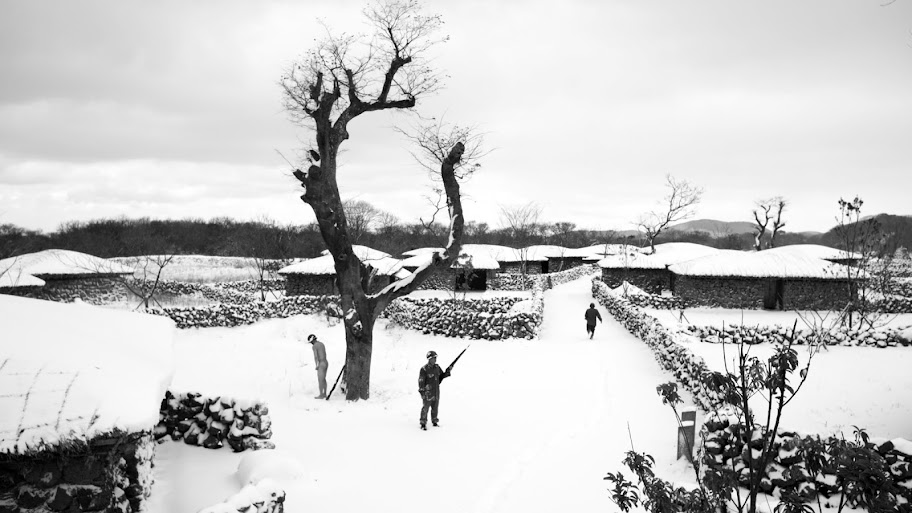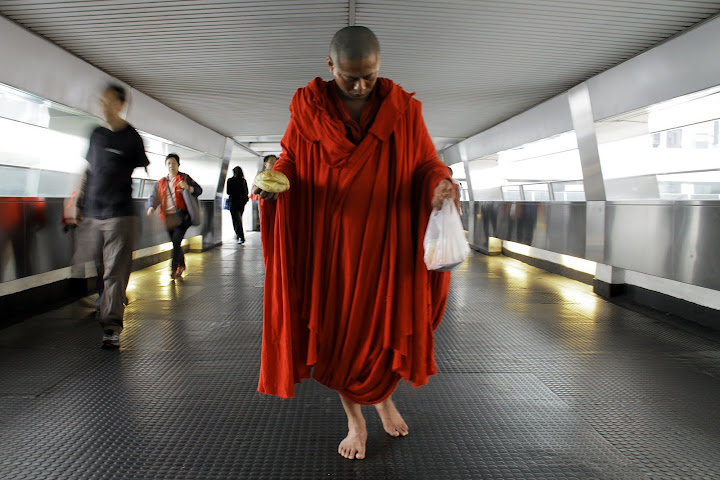Friday, March 22, 2013
Olympus Has Fallen
 It's a known fact that a group of US
Navy SEALs dropped from the night sky,
raided
a compound in a foreign country, and
killed Osama
bin Laden. How about a group of international terrorists
arrives from the sky and enters from the front door during
broad daylight, attacks the White House, and
captures the President of the United States?
Luckily, the latter scenario is pure fiction in
director Antoine
Fuqua's explosive action thriller
"Olympus Has
Fallen" (USA 2013 | 130 min.). The film tells an
incredible story about a brave former secret service agent
who single-handedly fights a group of Korean terrorists to
save the entire nation, and the president.
It's a known fact that a group of US
Navy SEALs dropped from the night sky,
raided
a compound in a foreign country, and
killed Osama
bin Laden. How about a group of international terrorists
arrives from the sky and enters from the front door during
broad daylight, attacks the White House, and
captures the President of the United States?
Luckily, the latter scenario is pure fiction in
director Antoine
Fuqua's explosive action thriller
"Olympus Has
Fallen" (USA 2013 | 130 min.). The film tells an
incredible story about a brave former secret service agent
who single-handedly fights a group of Korean terrorists to
save the entire nation, and the president.
The film begins on a quiet and snowy Christmas Eve. Secret service agent Mike Banning (Gerard Butler) escorts the President (Aaron Eckhart) and his family en route to a fundraising event. Everyone can sense the air that something is going to happen. Of course it happens. The breathtakingly intense incident sets the tone for the rest of the movie. As a consequence, Mike Banning leaves the secret service. A year and half later, when the South Korea prime minister visits the President of the United States at the White House, a heavily armed large aircraft arrives on top of the White House and showers the national mall with rain of bullets. The master mind behind the attack is a Korean terrorist Kang (Rick Yune). By precise coordination, Kang successfully holds the President, the Vice President (Phil Austin), and the Secretary of Defense (Melissa Leo) hostage inside the White House bunker. The National Mall becomes a sea of fire. The nuclear arsenal is under Kang's control—perhaps the US shouldn't have piled up so many nuclear war heads at the first place. While all hell breaks loose and army's attempts for breaking into the White House fail, Mike Banning miraculously forces his way inside the White House, which is coded Olympus by the secret service. Using his knowledge about the White House as a formal secret service agent (no, the passcode has not been changed), he establishes the only communication between the House Speaker (Morgan Freeman) and the ruined White House. He becomes the only hope to avert an even more catastrophic disaster. Director Antoine Fuqua hardly gives the viewers any chance to take a break from the extravagant violence and exhilarating action sequences. The situation only gets worse by the minute. Horrific acts escalate one after another. It's surreal to see the familiar White House looked like a war zone in Iraq and Afghanistan. The film's pace is so fast that you don't have the time to pause and to question the credibility of the story. However, once bullets stop flying, you might ponder about the motives of the attack and some implausible details during the fierce fight. The subplots regarding president's wife and son seem to be out of the place and distracting as well. Where are those Navy SEALs who kill bin Laden? It's too bad that those Blue Angels are only good for showing off during Fleet Weeks, but useless when the White House is under attack. The commanding Morgan Freeman is more presidential than Aaron Eckhart in the film. It makes me wonder why saving the President's life is more important than the survival of an entire nation. I am sure Morgan Freeman would be a fine president. After a vivid display of a falling Olympus, it's such a relief that the whole thing is just a movie. "Olympus Has Fallen," a FilmDistrict release, opens on Friday, March 22, 2013 at Bay Area theaters.
|
Friday, March 15, 2013
Stoker
 Acclaimed South Korean veteran director
Park Chan-Wook
(박찬욱) is the master mind behind his
brilliant, violent, suspensive, mesmerizing, and elegant
vengeance trilogy—"Sympathy for Mr. Vengeance"
(복수는 나의 것,
2002), "Oldboy"
(복수는 나의 것, 2003),
and "Lady
Vengeance" (친절한
금자씨, 2005). His latest film is his
English-language debut: a stylish and captivating, yet less
bloody psychological thriller "Stoker"
(USA/UK 2012 | 98 min.). Under his impeccable
control, the film floats between dreamy fantasy and
mysterious reality, with striking visuals and superb
performance. Although not as exhilarating as his vengeance
trilogy, this film is more engaging and thrilling than
Park's previous film "Thirst"
(박쥐 2009).
Acclaimed South Korean veteran director
Park Chan-Wook
(박찬욱) is the master mind behind his
brilliant, violent, suspensive, mesmerizing, and elegant
vengeance trilogy—"Sympathy for Mr. Vengeance"
(복수는 나의 것,
2002), "Oldboy"
(복수는 나의 것, 2003),
and "Lady
Vengeance" (친절한
금자씨, 2005). His latest film is his
English-language debut: a stylish and captivating, yet less
bloody psychological thriller "Stoker"
(USA/UK 2012 | 98 min.). Under his impeccable
control, the film floats between dreamy fantasy and
mysterious reality, with striking visuals and superb
performance. Although not as exhilarating as his vengeance
trilogy, this film is more engaging and thrilling than
Park's previous film "Thirst"
(박쥐 2009).
The film's protagonist is an ireful teenager India Stoker (Mia Wasikowska). On her 18th birthday, Indian loses her beloved father Richard Stoker (Dermot Mulroney) to a car accident. At Richard's funeral, a charming and mysterious uncle Charlie (Matthew Goode) shows up. Until that moment, Indian doesn't even know that she has an uncle. With his own agenda in mind, Charlie decides to stay for a while at the gigantic desolate mansion which Indian shares with her alienated mother Evie (Nicole Kidman). An intriguing and fascinating game beings to be played by these twisted and perplexing characters. While the performance is uniformly solid in the film, Mia Wasikowska stands out as the introspective India, who never smiles once in the entire film. She vividly conveys Indian's complex mind and curious fantasy with little physical movement and few spoken words, but occasionally with some piano play. Actually, the dialogue is sparse in the film. The story is often told or felt by the lush visual and the thrilling atmosphere. Although the plot doesn't always make sense, but director Park Chan-Wook's masterful direction makes the film thoroughly engaging. He knows exactly how to make each scene to be intensely suspensive, and he guides viewer's attention to follow his frame closely. In fact, before he started shooting the film, he already completed the storyboard for the entire film—he has the film made already in his mind even before the camera starts to roll. As a Korean director, Park Chan-Wook is not alone for coming to Hollywood to make an English-language film this year. Couple months ago, another Korean director Kim Jee-woon (김지운) just released "The Last Stand." Is this "Korean directorship" going to be a new trend? I certainly don't mind if it is, especially when more Hollywood films are made by directors like Park Chan-Wook. "Stoker," a Fox Searchlight Pictures release, opens on Friday, March 15, 2013 at Bay Area theaters.
|
The Call
 "911, what's your emergency?" You probably hope that
you'll never have to make a 911 call and to hear this
line. But perhaps you always wonder what it's like during
such a call. Sometimes, 911 calls even make
to the news. Besides those prank calls, 911
calls are usually about life and death. That's definitely
the case in director
Brad
Anderson's new thriller
"The Call"
(USA 2013 | 96 min.). The film is a mix bag of
intensely frightening moments and laughable ludicrous
plots. It's good entertainment nevertheless.
"911, what's your emergency?" You probably hope that
you'll never have to make a 911 call and to hear this
line. But perhaps you always wonder what it's like during
such a call. Sometimes, 911 calls even make
to the news. Besides those prank calls, 911
calls are usually about life and death. That's definitely
the case in director
Brad
Anderson's new thriller
"The Call"
(USA 2013 | 96 min.). The film is a mix bag of
intensely frightening moments and laughable ludicrous
plots. It's good entertainment nevertheless.
There are 240 million 911 calls each year. One of the calm voices speaking to those often hysterical callers comes from veteran LAPD 911 dispatcher Jordan Turner (Halle Berry). After she fails to save a girl from a home intruder, she feels responsible for the tragedy. To avoid taking another 911 call which reminds her about the incident, she becomes a trailer. She advises newly-hired 911 dispatchers not to get emotionally attached to the callers and not to promise anything on the line. It's safe for us to anticipate that she is unable to follow neither of her own advices. Right in the middle of giving those advices, Jordan is drawn back on the phone line. This time the caller is a girl named Casey Welson (Abigail Breslin). Casey is kidnapped from a shopping mall by a serial killer Michael Foster (Michael Eklund). Casey calls 911 from the trunk of the car using a prepaid cellular phone which cannot be traced by the GPS system. Obviously, Jordan attaches herself both personally and emotionally to Casey. And it's safe for us to guess again, she may be Casey's only hope to survive. Director Brad Anderson deserves the credit for getting the audience engaged. There are plenty predictable as well as unexpected thrilling moments in the film. Even you foresee something bad might happen, when it happens on the big screen, you still scream. Then you might laugh for being tricked into screaming. The sharp contrast between 911 dispatchers' calmness (at least they appear to be) and callers' panic makes the story even more dramatic, especially during the first half of the film. As if the film's creators run out of ideas about how to clean up the exciting chaos in the first half of the film, the film becomes quite sloppy after going into the second half of the film. It's no longer enough for Jordan to getting emotionally involved with Casey. The film needs her to be a brave hero to save Casey, besides looked astonishingly beautiful sitting in that 911 dispatcher chair. Clearly, she seems losing her cool and acts without sound judgment. When people in the audience start to yell at the screen telling Jordan about what to do and about what is coming, you know Jordan's credential for being a 911 dispatcher is long gone. Finally, I would like my phone to be able to flash the big "no signal" sign when that happens. I don't think any phone can display that except Jordan's phone. "The Call," a TriStar Pictures release, opens on Friday, March 15, 2013 at Bay Area theaters.
|
Thursday, March 7, 2013
CAAMFest 2013
|
After thirty years, San
Francisco International Asian American Film Festival
(SFIAAFF) has a new identity. It
becomes CAAMFest. The new
name effectively promotes the institution behind the
festival—Center for Asian America
Media (CAAM).
The festival also has a new tagline: "Film. Music. Food."
For thirty years, San Francisco International Asian American Film Festival has been the largest showcase in North America for Asian American independent filmmaking and current Asian cinema. However, starting from last year's SFIAAFF 30, the festival's programming has shifted to a new direction to embrace the emerging new media. One noticeable change is the reduction of the presence of contemporary Asian cinema as well as the total number of films in the programming, and the increase of CAAM's in-house productions. This year, while continuing this trend, the festival makes even more drastic changes, besides giving itself a new name. The festival eliminates the San Jose location altogether and runs the entire ten days, March 14-24, in San Francisco and Berkeley (which I think it's a smart move). It also adds quite a few musical programs (does SXSW come to your mind?) and live-cooking events to the festival. And, for the first time, the festival presents a 3-D film—the fantastic "The Monkey King: Uproar in the Heaven" (大闹天宫 | China 2011 | in Chinese | 92 min.). It's evident that the festival has evolved itself to be a primary platform for CAAM's productions and interactive programs that involve music and food. The changing of the festival's name seems inevitable and actually quite fitting to reflect the festival's new identity. I love film, music, as well as food. However, I would like to focus on film aspect of the festival here. This year, the film's portion of the festival is downsizing to 21 narrative features and 19 documentary features, and many of these documentaries last less than an hour, perhaps they are tailored for PBS. One prominent focus at this year's festival is China. Quite a few films tell heartbreaking stories about the lives of ordinary Chinese people who are left behind by the economic boom. These films bring the widening chasm between rich and poor and escalating political unrest in China to light, and understandably, none of them are upbeat. Here are my picks in this year's program. As always, each film title is linked to the festival program, where you can find more details about the film including showtime and venue information. Each film's still image is linked to a film's official Web site if it's available. The CAAMFest 2013 takes place March 14-24, 2013 in San Francisco at Sundance Kabuki, SF Film Society Cinema, Castro Theater, and Great Star Theater, and in Berkeley at Pacific Film Archive, and other venues around the Bay Area.
|
Labels: CAAMFest, SFIAAFF 2013









